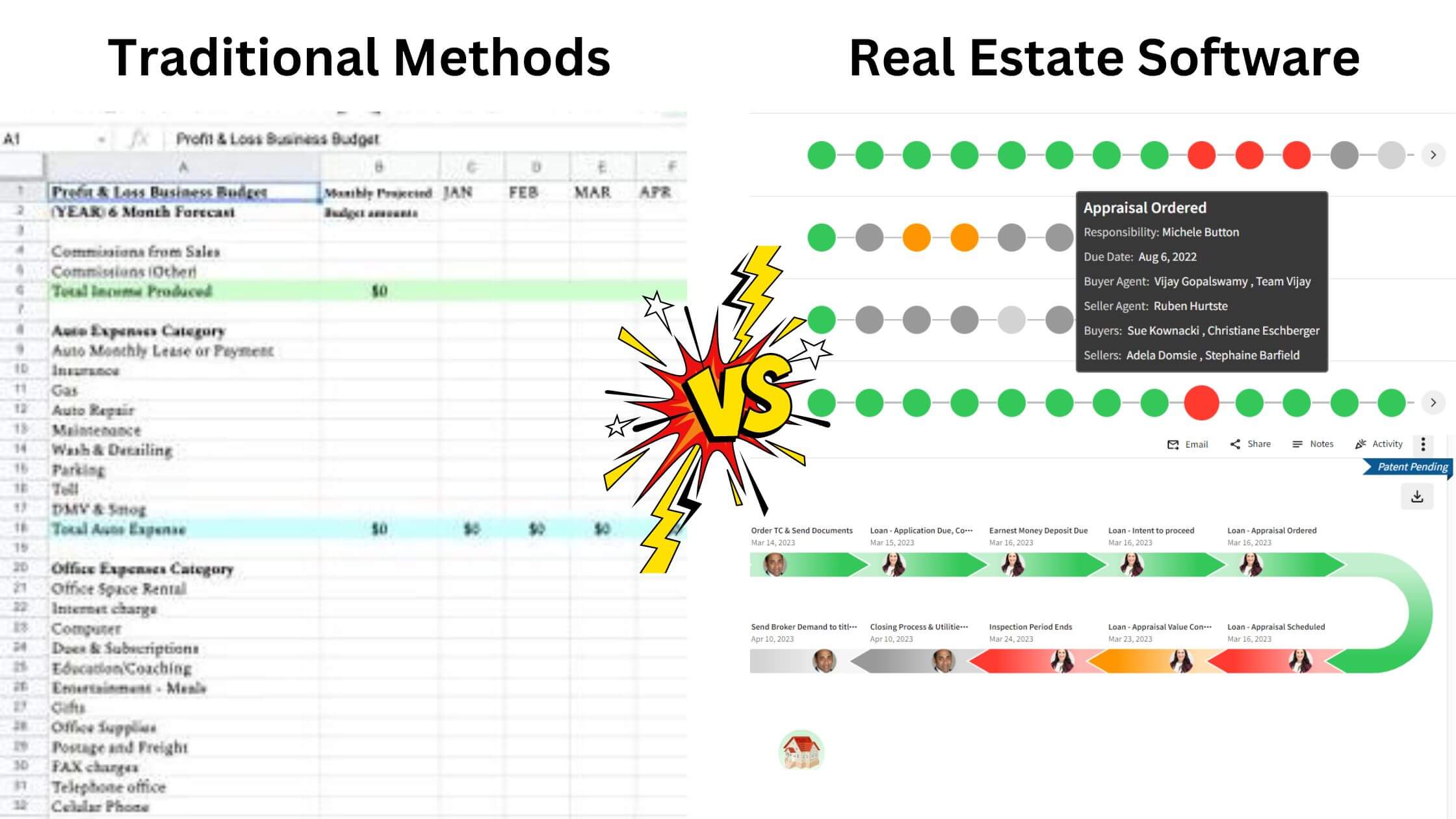
The real estate industry has traditionally relied on checklists, whiteboards, spreadsheets or calendars methods to manage transactions. However, with the rise of technology, more and more real estate professionals are turning to real estate transaction management software. So, which method is better for the industry in 2023? Let’s explore.
Traditional paper-based methods are time-consuming, error-prone, and lack organization. Real estate professionals must manually track deadlines, organize documents, and communicate with various parties involved in a transaction. This can lead to mistakes and delays, which can impact client satisfaction and revenue.
On the other hand, real estate transaction management software allows agents, brokers, and transaction coordinators to streamline their workflow and manage their transactions from start to finish. With features like client management, deadline tracking, and communication coordination, real estate professionals can increase their productivity, reduce errors, and ensure compliance with real estate regulations.
In today’s market, clients expect fast and efficient transactions. With a real estate transaction management system, real estate professionals can meet these expectations and provide a better experience for their clients. Additionally, the increased efficiency allows agents to take on more clients and close more deals, ultimately increasing their revenue.
Overall, while traditional methods have been the norm in the real estate industry, real estate transaction management software is quickly becoming the preferred method in 2023. It offers numerous benefits, including improved organization and increased efficiency. By embracing this technology, real estate professionals can stay ahead of the competition and provide better service to their clients.


